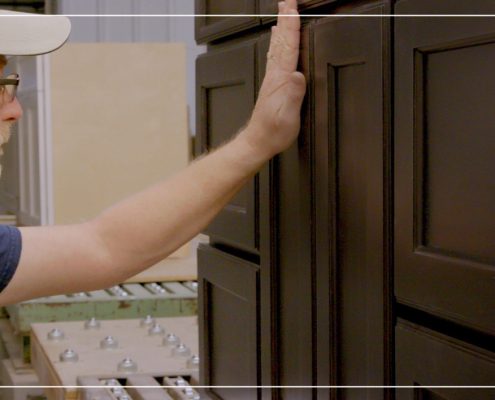Care & Cleaning
♦ Dust frequently with a soft cotton cloth.
♦ Remove any spills, splatters, or standing liquid from cabinetry promptly with a clean, soft, cotton cloth using a blotting, rather than a wiping, action. Clean as needed with a dampened cloth and dry immediately. To remove grease, food residue, or oils use a clean cloth dampened with a mild soap solution; dry immediately.
♦ Avoid using the following: bleach, ammonia, cleaners with abrasive additives, mineral oil, citrus products, powdered cleaners, or scouring pads. Never allow oven cleaner to come in contact with any of your finished cabinetry.
We recommend a non-silicone based polish which can be applied as needed with a soft, clean cloth. Avoid the use of products formulated with waxes, petroleum solvents, or silicones.
♦ Do not use a dish cloth or sponge to clean your cabinetry. They may contain remnants of food particles, grease, or detergents.
♦ Excessive moisture should always be avoided. Do not drape damp dish towels or cloths over cabinet doors or drawers. Avoid placing coffee makers or other appliances where steam or heat vents directly onto cabinet surfaces.
♦ Water is the worst enemy of your high quality cabinets and the leading cause of damage by homeowners! Do not let water lie on top of drawer heads or doors. Use extra care when mopping around the base cabinets and finished sides to keep water from being absorbed into the cabinet.
♦ Control humidity. Extreme temperatures or elevated humidity may cause wood to expand, contract, warp, or swell which may compromise the integrity of your cabinetry’s finish.